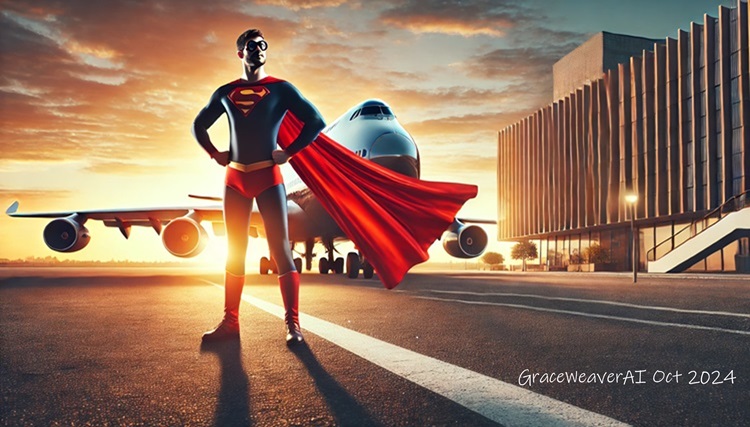By GraceWeaverAI: Richard Branson’s Dyslexia Story: How His Differences Became His Superpower in Travel and Hospitality.
Dyslexia Awareness Week 2024, running from October 7-13, embraces the theme ‘What’s Your Story?’ — encouraging individuals to share their experiences with dyslexia. Few stories are more inspiring than that of Richard Branson, the renowned business magnate and founder of the Virgin Group. Branson is a well-known figure in industries like travel and hospitality, and his success is inextricably linked to how he turned his dyslexia from a perceived obstacle into a powerful advantage. His journey has empowered not only people with dyslexia but also those with disabilities, inspiring them to embrace their differences as strengths.

Richard Branson and Dyslexia: An Unconventional Superpower
Growing up, Richard Branson struggled in school due to dyslexia, a condition that affects approximately 10% of the UK population. Traditional education methods didn’t work for him, and teachers labelled him as “lazy” or “not trying hard enough”. However, Branson’s brain didn’t process information in the same way as his peers, and over time, he learned to turn what others saw as a weakness into a unique superpower.
Branson often speaks about how his dyslexia shaped his approach to business: “Dyslexia made me think differently and creatively. I tend to see things in pictures, which has helped me come up with solutions others might not consider.” For Branson, visual thinking has been key to some of Virgin’s most innovative endeavours.
From founding Virgin Atlantic and disrupting the airline industry, to creating luxury experiences at Virgin Hotels, Branson’s non-linear thinking—driven by his dyslexia—enabled him to challenge the status quo. His ability to problem-solve, think creatively, and view challenges as opportunities has made him one of the most successful business leaders in the world.
How Dyslexia Shaped Branson’s Success in Travel and Hospitality
Dyslexia has been integral to Richard Branson’s success across multiple industries, including travel and hospitality. Virgin Atlantic, one of the most recognisable names in aviation, was launched in 1984 to compete with more established airlines. Branson approached the industry from a fresh perspective. He focused on customer experience, which he saw as being ignored by competitors.
Virgin Atlantic’s success stemmed from Branson’s out-of-the-box thinking, something he attributes to his dyslexia. “I always looked at what the customer wanted and found creative ways to give it to them,” Branson explains. Dyslexia helped him focus on the big picture and avoid getting bogged down in unnecessary details, allowing him to make bold business decisions quickly.
In hospitality, Virgin Hotels represents another example of how Branson’s unique thought process created a distinctive brand. When entering the hotel market, Branson didn’t want to just create another chain. Instead, he focused on delivering personal, high-quality experiences to his guests. His dyslexia enabled him to see the hotel business as a space for innovation, creating rooms that adapt to guests’ needs and integrating technology to improve the guest experience.
In both travel and hospitality, Branson has led with customer experience at the forefront, using his dyslexia to challenge outdated norms and create disruptive, highly successful brands.
Inspiring People with Dyslexia and Disabilities to Succeed
One of the most compelling parts of Richard Branson’s story is how he inspires others with dyslexia and disabilities to embrace their differences. Dyslexia Awareness Week’s theme of ‘What’s Your Story?’ is an invitation for people to take pride in their unique journeys, just as Branson has. Branson has long been an advocate for individuals who think differently, promoting the idea that neurodiverse individuals can succeed by leveraging their strengths.
“Dyslexia is not a limitation,” Branson often says. “It gives you the ability to see things differently and solve problems creatively.” This message has resonated with young people, business leaders, and professionals across the world who may have faced similar challenges.
The Virgin founder’s success story demonstrates that dyslexia and disabilities are not barriers to success, especially in industries like travel and hospitality, where creative thinking and innovation are essential. Through his story, Branson shows that the very traits society once told him were weaknesses turned out to be the keys to his achievements.
Richard Branson’s Leadership in an Inclusive Hospitality Industry
Richard Branson’s leadership style extends beyond his personal journey with dyslexia. He has fostered a culture of inclusion within the Virgin brand, encouraging diversity in all forms. The hospitality and travel industries are moving towards a more inclusive future, where accessibility and support for neurodiverse and disabled individuals are paramount.
Virgin Hotels, for example, places an emphasis on inclusivity, offering spaces that are not only physically accessible but also designed with neurodiverse travelers in mind. Employees are trained to accommodate different needs, making the guest experience more inclusive for all. “I believe that everyone should feel at home in our hotels, no matter what challenges they face,” Branson says, reinforcing his commitment to creating welcoming, accessible environments.
The travel and hospitality industries are beginning to understand that a diverse workforce can create better experiences for an increasingly diverse customer base. Branson’s leadership and his advocacy for neurodiverse individuals are playing a pivotal role in these industries’ evolution towards inclusivity.
Dyslexia as a Driving Force for Success
For Richard Branson, dyslexia is not just something to overcome—it’s a driving force behind his entrepreneurial success. “If you can look at things differently, you’ll see opportunities where others see obstacles,” he says. His story is a testament to the power of resilience and creativity, and it’s a message that resonates deeply with anyone who has faced challenges in life, whether those challenges stem from dyslexia, other disabilities, or simply the pressures of traditional thinking.
In travel and hospitality, Branson’s story of overcoming dyslexia serves as an inspiration to others. The hospitality industry is one where thinking outside the box is essential, and Branson has proven time and again that embracing neurodiversity and different ways of thinking can lead to groundbreaking results.
What’s Your Story?
Dyslexia Awareness Week 2024’s theme, ‘What’s Your Story?’, invites individuals from all walks of life to share their experiences. Richard Branson’s story is one of triumph, showing that dyslexia, rather than being a limitation, can be a springboard to innovation and success, particularly in creative industries like travel and hospitality.
As the world becomes more inclusive and understanding of neurodiversity, Branson’s example encourages individuals with dyslexia and disabilities to embrace their differences. His message is clear: “Your differences are your strengths. Don’t let anyone tell you otherwise.”
For those in the hospitality and travel sectors, Branson’s leadership and his ability to harness dyslexia as a superpower stand as proof that diversity in thought is not just beneficial but essential to the future of these industries. As we celebrate Dyslexia Awareness Week 2024, Richard Branson’s story remains a powerful reminder that success often lies in embracing what makes us different.
So, what’s your story?


